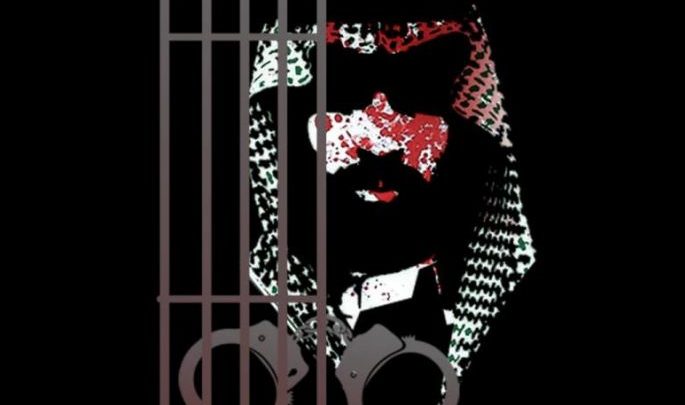
Rights groups filed a criminal complaint today, asking the French authorities to initiate an investigation against Saudi Crown Prince Mohammed bin Salman for the torture and murder of exiled Saudi journalist Jamal Khashoggi.
DAWN, a group founded by Khashoggi in June 2018, three months before his murder, filed a 42-page complaint with the Paris tribunal on July 28, alleging that MBS was an accomplice to Khashoggi’s torture and enforced disappearance from the Saudi consulate in Istanbul on October 2, 2018.
The lawsuit, backed by the OSJI and co-filed by TRIAL International, stated that MBS does not have immunity from prosecution since he is not the head of state. The organisations also said that MBS had persuaded Turkey to abandon proceedings against Saudi officials for the Khashoggi assassination and that a trial held against nameless defendants in Saudi Arabia for the crime was a charade, leaving France as one of the last venues for justice.
Sarah Leah Whitson, executive director of DAWN, stated, “French authorities should immediately initiate a criminal inquiry into Mohammed bin Salman for his complicity in the brutal murder of Jamal Khashoggi. As a signatory to the United Nations Conventions against Torture and Enforced Disappearances, France is required to investigate a suspect like MBS if he is present on French soil.”
Khashoggi, a journalist for the Washington Post, criticised the Saudi crown prince’s suppression of free speech and opposition within the country. The organisations believe that on MBS’s orders, Saudi authorities dismembered Khashoggi’s body using a bone saw after luring him to their Istanbul consulate.
President Biden stated that, following his July meeting with MBS, he addressed the crown prince about Khashoggi’s murder and informed him that he considered him directly accountable for the killing. The US Office of the Director of National Intelligence (ODNI) assessment on the assassination, which the Biden administration issued, found that MBS was responsible for the murder. Agnès Callamard, then the United Nations Rapporteur on Summary Executions, reached a similar conclusion.
DAWN and Khashoggi’s fiancee, Hatice Cengiz, have filed a legal complaint against MBS over the murder in the United States.
The French legal system acknowledges “universal jurisdiction” in torture cases and enforced disappearances. This means that judicial authorities have the power – and in the case of torture and enforced disappearances, the obligation – to investigate and prosecute these crimes regardless of where they were committed or the nationality of the suspects or their victims, as long as the suspect is on French territory.
Philip Grant, the executive director of TRIAL International, stated that France played a crucial role in the passage of the United Nations Convention for the Protection of All Persons from Enforced Disappearance. “The moment has come for France to live up to the norms it fought so hard and to combat impunity for such atrocities with vigour.”
The groups stated that universal jurisdiction cases are becoming an increasingly vital component of international efforts to hold those responsible for atrocities accountable, provide justice to victims with no other recourse, deter future crimes, and ensure that countries do not become safe havens for human rights violators.
“The deliberate murder of Jamal Khashoggi was the culmination of an ongoing wave of repression unleashed by MBS against Saudi civil society, including arbitrary detention, torture, state-sponsored murder, and enforced disappearance,” stated James A. Goldston, executive director of the Justice Initiative. “By meeting with the crown prince on French soil, while Saudi dissidents remain unjustly imprisoned, trapped in the country by travel bans, and targeted abroad, President Macron risks contributing to the dangerous normalisation of a brutal man.”
Following the murder of Khashoggi, France and other Western nations slapped sanctions and travel restrictions on the 18 individuals accused of participation. Germany, France, and the United Kingdom coordinated the imposition of travel restrictions applicable in all 26 nations comprising the borderless Schengen zone in Europe. On October 20, 2018, former French Foreign Minister Jean-Yves Le Drian denounced the murder of Jamal Khashoggi “in the harshest possible terms.” In addition, the French Foreign Ministry announced that “the murder of Mr Khashoggi is a heinous crime that violates press freedom and the most fundamental rights.” Along with numerous other mayors from across the world, the mayor of Paris, Anne Hidalgo, cancelled her attendance at the U20 summit held in Saudi Arabia.
On October 26, 2018, President Macron stated: “What is the connection between armament sales and the murder of Mr Khashoggi? There is no connection with Mr Khashoggi.” The French Ambassador to Germany, Anne-Marie Descotes, warned the German government on March 25, 2019, over the “politicisation” of arms sales, which might threaten joint ventures for planes, drones, and tanks. France was the third largest supplier of armaments to Saudi Arabia between 2014 and 2018, behind the United States and the United Kingdom. In contrast to several other European nations, France did not prohibit the sale and supply of guns to Saudi Arabia. In 2019, less than a year after the assassination, France transferred $1.7 billion in arms shipments to Saudi Arabia and sold it billions of dollars worth of weapons yearly. NGOs filed a criminal case in June 2022 against French weapons corporations for these arms shipments, asserting France’s involvement in war crimes in Yemen.